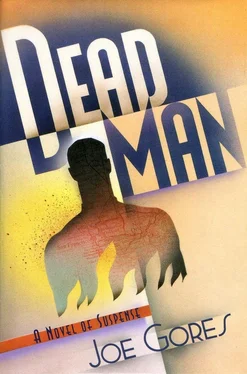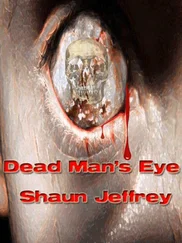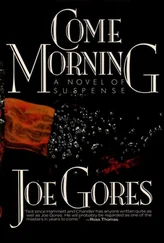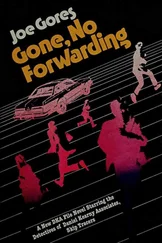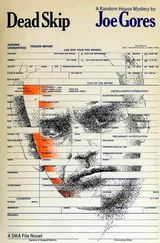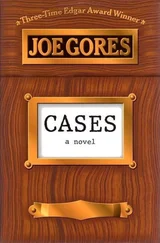Zimmer would have given Maxton the bonds, but he hadn’t. So if he’d come down this alley, something stronger than his fear of Maxton had driven him on.
Or drawn him on.
Belatedly, he made a note on the Hispanic cook as a wino careened past him up the alley. No note for him. Winos saw a lot, but their sense of time and reality was elastic, and in hopes of a bottle of muscatel they would tell you not what they’d seen, but what they thought you wanted them to have seen.
He emerged from the far end of the alley, looked around casually. Here is where he would have parked if he’d been waiting to pick up Zimmer and the bonds.
A black teenager had just finished washing and squeegeeing the front display windows of a men’s clothing store. Dain made a note and strolled on, noting a florist truck, five secretaries exiting a building for a coffee break, an old woman staring down through lace curtains from a third-floor apartment window.
He quit for the day at the end of the block. Ten minutes max was as long as Zimmer would have been in the vicinity: after that he would have walked away, caught a bus, a taxi, driven off himself in a car, or been picked up by someone else.
For the rest of the week, Dain left the front of the bank each morning at 9:23 to canvass in a different direction until he was satisfied that he had covered all reasonable possibilities.
Records could tell him all about who Zimmer had been up until the day he stole the bonds. Records could tell him Zimmer had accessed the Lorimer safe-deposit box at 9:03 A.M. and had left at 9:22 A.M. There the records stopped.
But Zimmer had kept going. So Dain did, too. He now had his raw data: now he could begin to work it. This was like a chess game. The same almost infinite number of choices; the same implacable logic. And it absorbed him to be working someone else’s backtrail, so he wasn’t thinking about
Marie going back and up, mouth strained wide, eyes wild
Yes, only Dain could work the backtrail. In person. Which was his salvation. Using the computer made him unbearably sad; as for chess, even looking at a board, even now five years later, made vomit rise in his throat.
On the coffee table in Mill Valley was the unfinished game he and Marie had been playing before they had left for Point Reyes five years before. He hadn’t been able to put it away.
“You know, honey, maybe Randy’s right. Maybe you’re treating the Grimes thing a little too much like just a game...”
And he, pretentious asshole that he was, had said, “You know that all investigations are just a game, sweetie — move, countermove, just like chess.”
And she had died. And Albie had died.
Sometime, maybe, someone else would die. Oh God, please let him find someone else he could make die...
Next morning, Dain caught the Cicero bus three stops short of the First Chicago Bank of Commerce, stood right behind the driver talking to him under the sign that said DO NOT TALK WITH DRIVER WHEN THE BUS IS MOVING. Nothing. A bill changed hands and Dain got off at the stop beside the bank.
Meg Crowley, in uniform and with her citation pad sticking out of a back pocket, turned from the counter with a coffee and turnover to cannon into a man just emerging from the rest room. Hot coffee cascaded down the front of his shirt.
“No milk or sugar next time,” said Dain with a wry grin.
Meg already had set her turnover and empty coffee cup on the corner of a table and was ineffectually dabbing with paper napkins, trying to blot up the stain; he was a hunk. They sat beside a window that needed washing. He told her about the missing heir he was that close to finding, son of a woman dying in Bangor, Maine. He described Zimmer, with attaché case...
“I remember him!” exclaimed Meg suddenly, her face lighting up. She laughed. “I’ve got a Mick temper on me, and he jaywalked right in front of me as if I didn’t exist...”
The postman looked like a ferret but was worthless. He had no fixed schedule for picking up the mail from the drop-box on the corner, couldn’t remember his pickup on that particular day, and only saw letters, not people on his route. A dead man walking.
The next morning, twenty bucks bought Dain three blocks’ worth of conversation with the doughnut truck driver who delivered to Karl’s Koffee Kup Kafe just short of the midblock alley. He had seen nothing, or if he had, didn’t remember it.
Chuck Gilette was a sandy-haired kid who delivered coffee and Danish from Karl’s to offices around the neighborhood. He wanted to go to college but his grades weren’t all that good so his salary and the tips he made went into the old college fund.
For Chuck, also, the missing heir and his dying mum.
“Sure I remember him, Mr. Dain. He sort of darted into the alley just as I came out of Karl’s, so I had to make a move...” He sprang backward in demonstration, like a batter getting brushed back by a close pitch. “The cap flew offa one of the cups, hot coffee all over my hand.” He grinned sheepishly. “I started to cuss him out, but he didn’t even know I was there.”
A $50 contribution to Chuck’s go-to-college fund.
Pablo Martinez, sneaking a cigarette behind the greasy spoon, got uneasy when Dain showed him a $20 bill.
“Four day’ ago you come down the alley,” Pablo accused.
“I’m not la migra,” said Dain quickly. He described Zimmer, his clothes, face, the attaché case in his hand. “I want to know if he walked past you last week and where he went...”
The man Pablo had bought his green card from had assured him it was so close to genuine it would pass any immigration scrutiny, but Pablo was not convinced. As a short-order cook illegally in the country, he had learned to be a pessimist.
“I doan see nothin’, man.”
Dain gave him the twenty anyway. Pablo’s reaction had confirmed he’d seen Zimmer passing by.
The black teenager who washed down the haberdashery windows each morning was on break, so Dain went through the motions with his other possibles even though reasonably sure someone had been waiting for Zimmer in a car at the end of the alley.
The five secretaries who went for coffee at 9:30 each morning were like the three monkeys: hear no, see no, speak no.
The old woman who hung out of her third-floor window had seen nothing she could remember on the day in question.
The florist truck driver, intercepted on his route, said he only remembered cars that he was able to look down into from his truck’s height advantage and see women’s legs.
“Saw a broad driving a 280Z stark friggin’ naked, once.” He was gesturing, excited. “Saw another broad giving a handjob to a guy in a Caddy Seville once, he was stopped for a red light on South State Street, middle of the friggin’ day...”
Colorful, but about as useful as the wino in the alley.
When he got back to the haberdashery, Dain found Zeke White stacking sweaters in a row of bins across the back of the store. The place smelled of wool and leather and shoe polish. Zeke had bright eyes with almost bluish whites, a high-bridged nose more Hamitic than Bantu, and hands too big for the rest of him, hands like those of 49er wide receiver Jerry Rice. He wore his hair buzzed, with his initials shaved into one side. His jeans were baggy, his hightops red with the laces undone.
“I saw you doing the windows four mornings ago.”
“Zmah job, man,” said Zeke with great economy of speech.
Dain described Zimmer. Zeke kept folding sweaters. “I’m trying to find out if he came down the alley one day last week when you were washing the windows.”
“Didn’t see the dude, man.”
Dain took a flier. “Maybe getting into a car?”
Читать дальше
